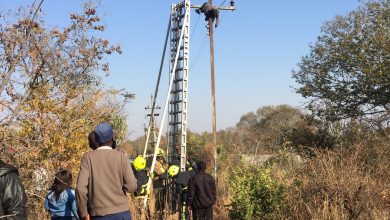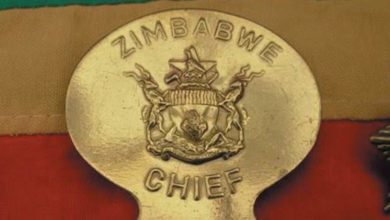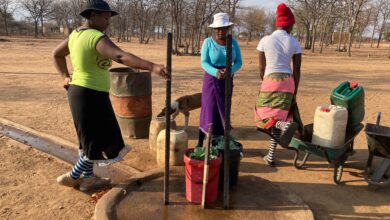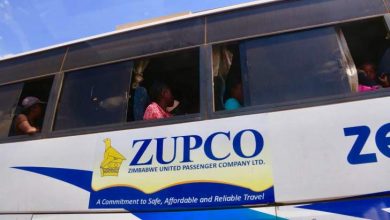Chiefs want Gukurahundi outreach meetings launch in Gwanda
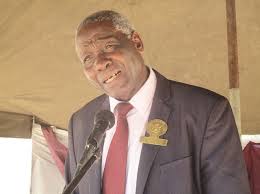
The National Council of Chiefs has suggested that the launch of the Gukurahundi community engagement meetings should take place in Gwanda District, Matabeleland South, even though the official launch date has not yet been set.
The council, who have since chosen a steering committee made up of 12 chiefs from Matabeleland North and South provinces to manage the process, has also requested to have a command centre based in Bulawayo to streamline coordination and implementation efforts.
When the outreach meetings start, each chief will work with a 14-member panel consisting of individuals representing various segments of the community.
Presenting a progress report at the Fourth Interface between President Emmerson Mnangagwa and the chiefs at Bulawayo State House on Friday, the President of the National Chiefs Council, Chief Lucas Mtshane Khumalo said they will endeavour to translate programme materials into all local languages so that these are broadly accessible and inclusive.
“Subject to your guidance, Your Excellency, the Steering committee has proposed the launch of the Gukurahundi Outreach Programme by His Excellency, in Gwanda District. With your approval Your Excellency, the Steering Committee requests the establishment of a Command/Coordinating Centre in Bulawayo to streamline coordination and implementation efforts,” he said.
Chief Mtshane said to enhance their effectiveness in fulfilling the assignment, they have implemented a comprehensive Steering Committee structure.
“The Steering Committee is comprised of 12 Members of Chiefs from Matabeleland North and South who are members of the National Council of Chiefs including its President and Deputy President, to manage the process. I am pleased to inform you that the gender dimension in the Steering Committee has been addressed by the inclusion of the first female in the National Chiefs Council Chief Ndube of Filabusi,” he said.
Since the outreach programmes focus on building reconciliation, Chief Mtshane said they have adopted a victim-centred approach to solving what he referred to as “historical grievances.”
“This victim-centred approach is crucial in making sure that the programme is not only comprehensive but also sensitive to the needs and experiences of those directly affected. To this end, your Committee is steadfast to bring to effect your nation-building and social development thrust that will progressively create a society that is cohesive, open and conducive to development and growth in line with your national vision,” he said.
The senior chief added that the National Chiefs Council had also established a 14 Member Panel for each Chief consisting of individuals representing various segments of the community, including elders, religious and cultural leaders, youth, women, counsellors, and rapporteurs.
“The primary role of these panels is to contribute to the decision-making process by offering diverse perspectives and expertise,” Chief Mtshane said.
“Elders bring wisdom and experience, Religious and Cultural leaders represent spiritual and cultural aspects, Youth contribute fresh ideas, Women ensure gender inclusivity, and fresh ideas, Counsellors provide guidance and psycho-social support, and Rapporteurs document the process.”
He added that this inclusive approach aims to foster a well-rounded and representative decision-making environment within the community.
Chief Mtshane noted the training the chiefs have undergone, covered an extensive range of topics such as Principles of Documentation, Conducting Interviews, Gender Sensitivity and Counselling.
“Special attention was given to maintaining confidentiality, providing psychosocial support, ensuring witness protection, obtaining informed consent, and minimising re-victimisation opportunities in line with the victim-centred approach that we intend to utilise during the Community Engagement phase of the process,” he said, adding that the capacitation of the Steering Committee also included data archiving and media management.
Chief Mtshane stated during this same training, the chiefs had developed Programme Document Templates for the Outreach and Training Materials utilised throughout the various capacity-building workshops.
“Chiefs, Rapporteurs, and Panel Members underwent extensive training encompassing conflict resolution, historical context, and advanced communication techniques to enhance their understanding of the community engagement process,” he said.
A total of 72 Chiefs comprising 41 Chiefs from Matabeleland North, 31 from Matabeleland South and 144 Rapporteurs from 14 districts in both provinces were trained in the use of Information Communication Technology devices, Chief Mtshabne added.
“Your committee appreciates the support you have accorded the programme. In particular, the provision of essential Information Communication Technology gadgets, such as laptops, recorders, printers, and stationery.
Chief Mtshane said the chiefs remained dedicated to the successful execution of the assignment they were given.
“The proposed strategies aim to fortify the impact of the programme. Your Excellency’s continued support and guidance will help us walk this sensitive path with boldness and resolve,” he summed.


